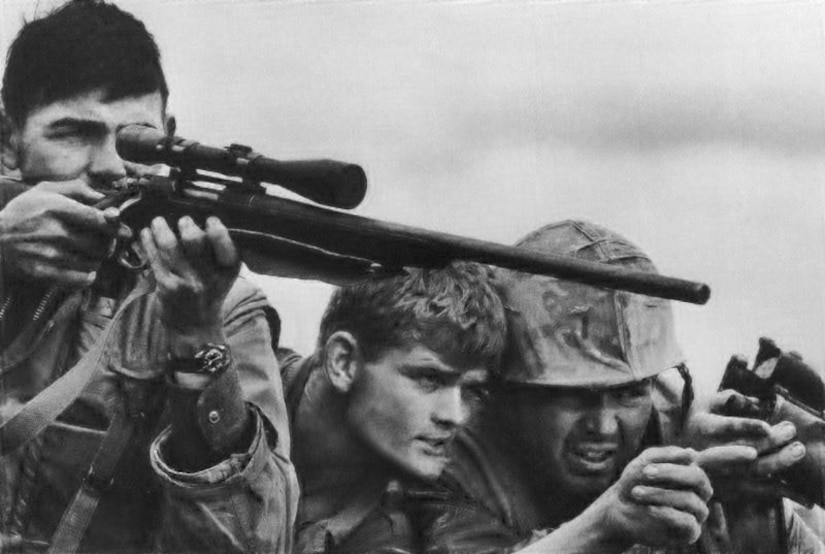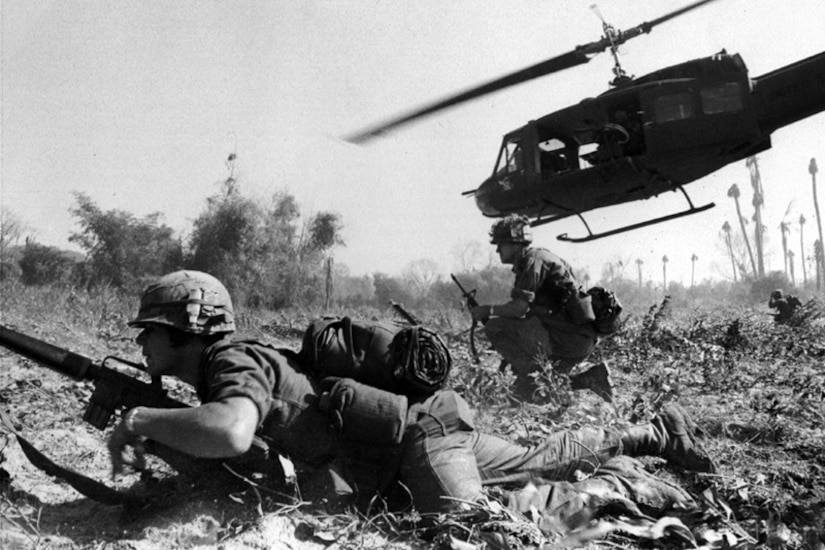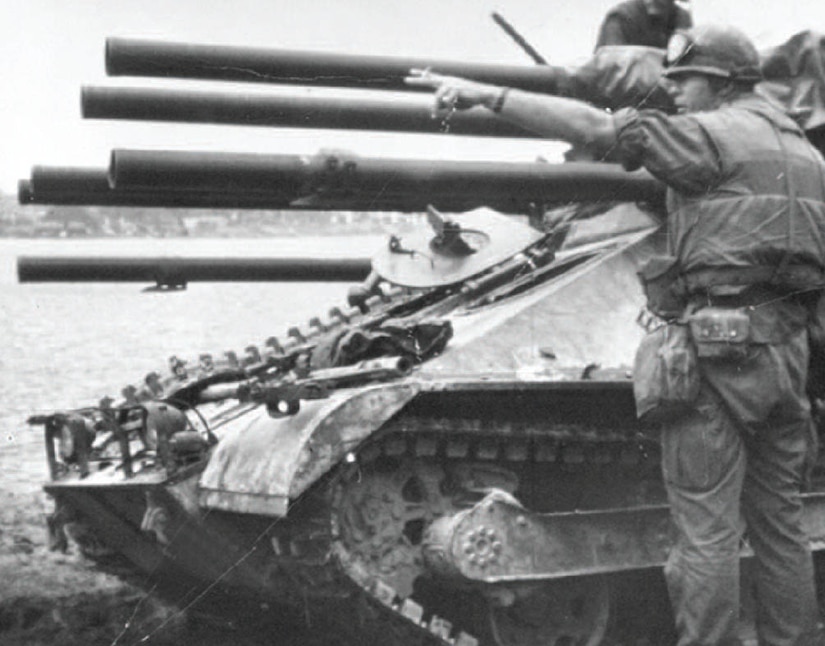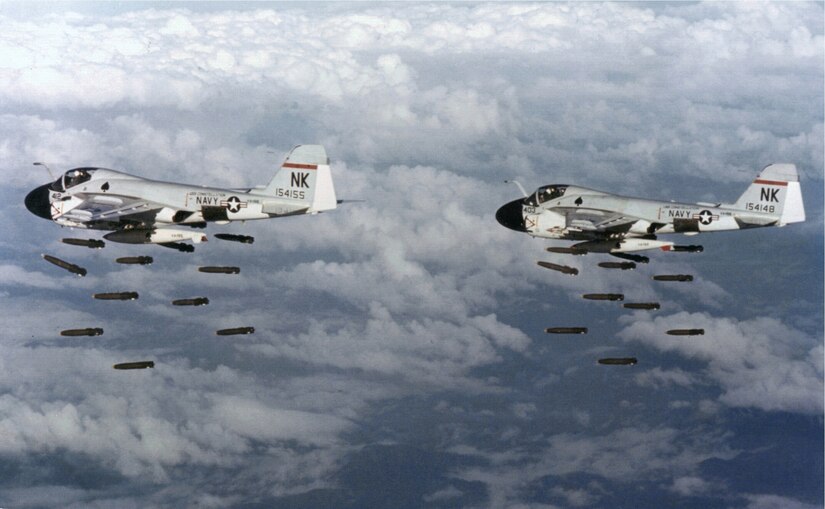March 29, 2021 | , DOD News
In 2012, President Barack Obama signed a presidential proclamation, designating March 29 as the annual observance of Vietnam War Veterans Day.
The signing of the proclamation marked the 50th anniversary of the departure of the last American troops from Vietnam — March 29, 1973. Only U.S. embassy personnel and support staff remained in South Vietnam until the fall of Saigon on April 30, 1975.

"The Vietnam War is a story of service members of different backgrounds, colors and creeds who came together to complete a daunting mission," the proclamation states. "It is a story of Americans from every corner of our nation who left the warmth of family to serve the country they loved. It is a story of patriots who braved the line of fire, who cast themselves into harm's way to save a friend, who fought hour after hour, day after day to preserve the liberties we hold dear."
More than 58,000 Americans were killed and many thousands more were wounded and injured or determined to be missing.
The proclamation also states: "In one of the war's most profound tragedies, many of these men and women came home to be shunned or neglected — to face treatment unbefitting their courage and a welcome unworthy of their example. We must never let this happen again."

Although U.S. military advisors had been in South Vietnam since 1955, the proclamation states that Jan. 12, 1962, was the starting point of the war. This is the date when America's first combat mission, Operation Chopper, was launched.
On that day, U.S. Army pilots airlifted more than 1,000 South Vietnamese soldiers to an area about 12 miles west of Saigon to capture a National Liberation Front stronghold. The NLF, also known as the Viet Cong, were communist fighters who were in South Vietnam.
Some of the Significant Battles
The Battle of Ia Drang, which lasted from Nov. 14 -18, 1965, was the first major battle between the U.S. Army and the North Vietnamese Army. It took place in the Central Highlands of South Vietnam.

The battle saw the first use of a large scale helicopter air assault and Boeing B-52 Stratofortress strategic bombers being used in a tactical support role.
The Battle of Khe Sanh took place in northwestern Quảng Trị Province in South Vietnam, from Jan. 21 to July 9, 1968. The main U.S. forces defending Khe Sanh Combat Base from a much larger enemy force consisting of three NVA divisions were two U.S. Marine Corps regiments, supported by elements from the U.S. Army, U.S. Air Force and South Vietnamese soldiers.
The Battle of Huế occurred within that same time period, Jan. 31 to March 2, 1968.

The battle was a major military engagement which was part of the larger Tết Offensive launched by the NVA and Viet Cong. After initially losing control of most of Huế, which was a major city in northern South Vietnam, the combined South Vietnamese and American forces gradually recaptured the city after more than a month of intense house-to-house fighting.
Besides ground campaigns, there were also air campaigns, with one of the most significant being Operation Rolling Thunder. The operation lasted from March 2, 1965, to Nov. 2, 1968, and involved a sustained aerial bombardment by U.S. and South Vietnamese air assets against targets in North Vietnam. The operation was designed to halt enemy supplies from reaching South Vietnam.
In 1972, another massive bombing campaign was conducted against North Vietnam, known as Operation Linebacker.

Other Proclamations
In addition to the presidential proclamation, there are also proclamations observing Vietnam War Veterans Day in all 50 states, the District of Columbia and all five U.S. territories.
Most of these proclamations list March 29 as Vietnam War Veterans Day, but some, like California, observe March 30 instead.
Besides the Defense Department, other federal, state and local agencies observe Vietnam War Veterans Day, including the Department of Veterans Affairs, the United States of America Vietnam War Commemoration and nonprofit veteran service organizations.








No comments:
Post a Comment